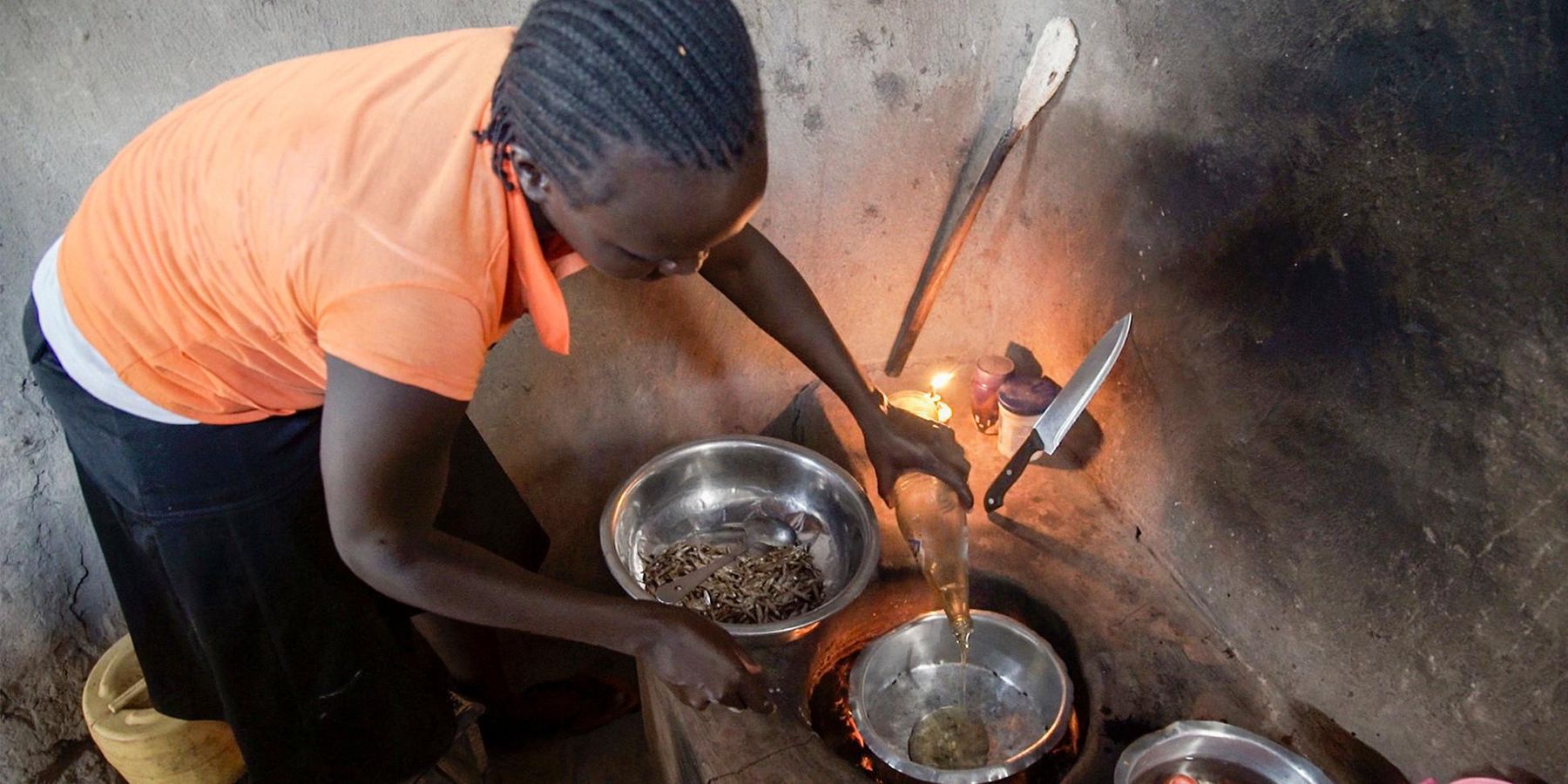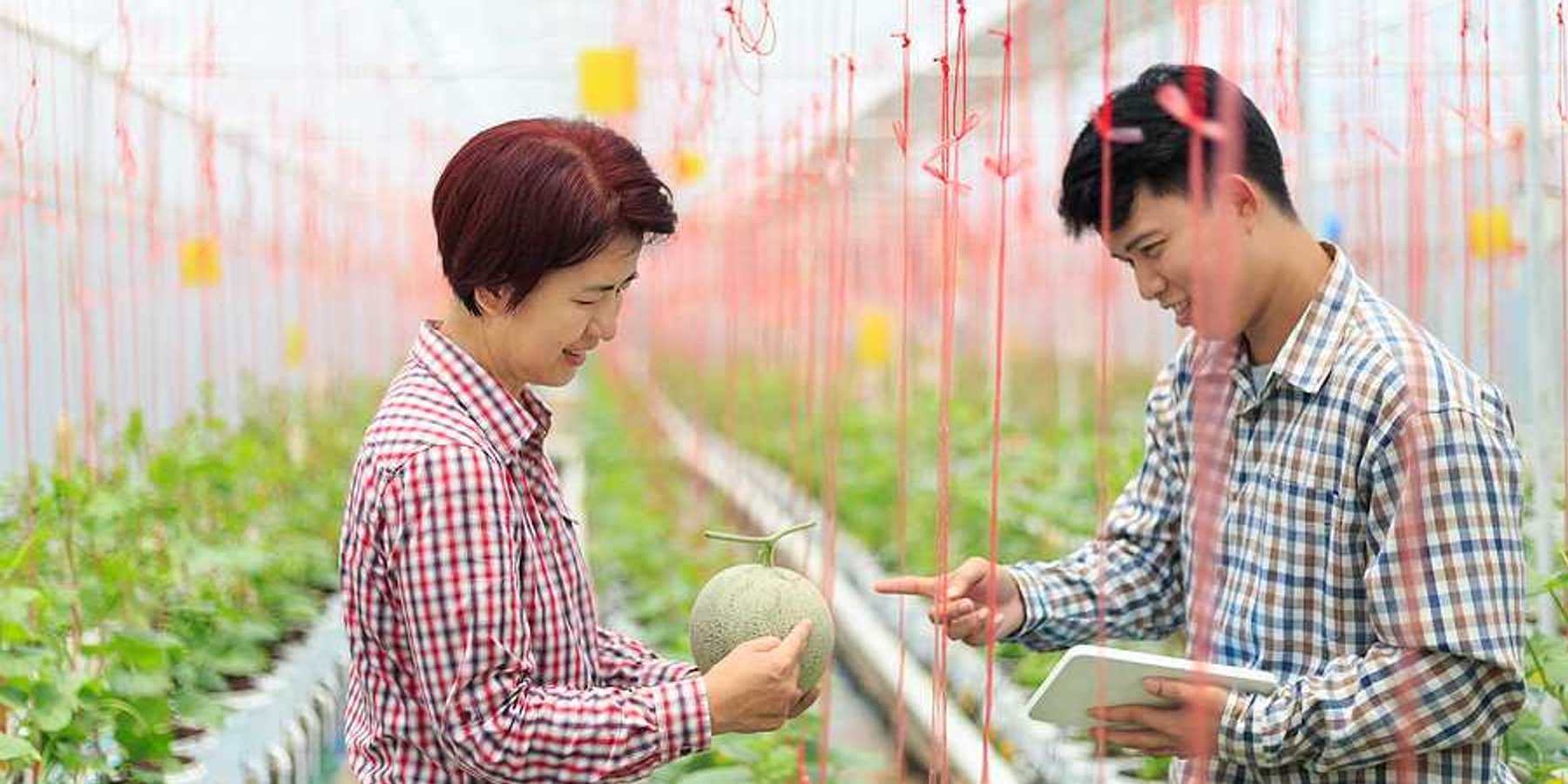
Fuel price spikes, pandemic recovery may push clean cooking goals out of reach: Study
"It is simply unfair and unequal."
Every year, 3.8 million people lose their lives to illness from household air pollution caused by cooking with unclean fuels such as wood, charcoal, coal, animal dung, and crop waste, according to the World Health Organization (WHO).
New research suggests the potential long-term economic fallout from the pandemic and possible fuel price spikes caused by climate mitigation policies might further stymie the global initiative to achieve universal clean cooking in upcoming decades.
The study, published last week in Nature Energy, underpins the challenges for reaching the United Nations Sustainable Development Goals—which encompass universal adoption of clean cooking—by 2030. It also reinforces the need for policy-making that incorporates efforts to promote clean cooking when tackling other pressing issues such as climate change and economic recovery from the pandemic.
One-third of the global population still cooks on smoke-filled stoves burning inefficient, hazardous fuels such as wood or coal. Cooking with unclean fuels and inefficient stoves is linked to multiple harmful health impacts: pneumonia, stroke, ischaemic heart disease, chronic obstructive pulmonary disease, and lung cancer. The WHO estimates nearly half of pneumonia-related deaths among children under the age of 5 are caused by particulate matter inhaled from household air pollution.
It also places a heavy toll on global air pollution and climate change. The World Bank reports that residential solid fuel burning is responsible for 58% of global black carbon—sooty carbon waste from incomplete combustion—emissions and a gigaton of carbon dioxide every year, making up approximately 2% of global greenhouse gas emissions.
LISTEN: Carlos Gould on global energy poverty and indoor air pollution
Global progress on improving cooking conditions has been slow. With the COVID-19 pandemic dragging many people worldwide—especially underdeveloped countries or regions—behind the poverty line, access to cleaning cooking systems has declined.
"The world is off track already with reaching universal access to clean cooking," Shonali Pachauri, a researcher at the International Institute for Applied Systems Analysis in Austria and lead author of the paper, told EHN. "We wanted to explore what the potential impacts of a slow recovery from the pandemic might be on clean cooking access."
To examine global access to clean cooking by 2050, the researchers constructed three types of simulations: baseline scenarios, a slow economic recovery from the COVID-19 pandemic scenario assuming a 20-year recovery period, and ambitious climate mitigation policy scenarios set to limit global warming to below 2 °C by the end of the century.
The researchers found that the UN Sustainable Development Goals of worldwide clean cooking by 2030 would not happen under any of the scenarios. In regions that currently most lack access to clean cooking —such as sub-Saharan Africa, developing Asia, Latin America, and the Caribbean—ubiquitous access may be out of reach even in 2050.
The study also showed that the potential prolonged economic downturn after the pandemic could strip 470 million more people's access to clean cooking by 2030. This aligns with the UN's recent estimation that COVID-19 could possibly leave around 420 - 580 million people in poverty.
Additionally, the study demonstrated that climate mitigation policy, if not accompanied by other policies that shield poor consumers from price changes, may hinder an additional 200 million people from transitioning to fossil-based clean cooking fuels, such as natural gas, liquefied petroleum gas, by making these options too expensive.
It's important to note that the scenarios are not predictions. "They're kind of 'what if' storylines," said Pachauri, adding the purpose of this modeling study "is to capture key underlying drivers of [household energy] choices and changes."
Unclean cooking especially undermines gender and equity, with women and children disproportionately affected since they often collect fuel and cook.
"It is simply unfair and unequal," Subhrendu Pattanayak, an environmental and energy policy professor at Duke University who was not involved in this study, told EHN. "You and I flip a switch in the morning, have our coffee, and move on from there…rarely exposed to the air pollution or to put up with the drudgery of collecting solid fuels. We must do something to help close the gap between the energy haves and the energy have nots," he added.
Multiple benefits of clean cooking
The new paper "helps us understand what we might expect in the future," based on the current trends while factoring in the impact of COVID-19, Darby Jack, an environmental health professor at Columbia University's Mailman School of Public Health who was not involved in this study, told EHN.
Jack, who also studies clean energy access in developing countries, said the biggest hurdle for global access to clean cooking is poverty and "the real challenge is figuring out how to help the economies that have lowest incomes."
Pattanaya thinks there needs to be a decentralized push allowing countries, or regions within a country, to promote clean household energy with the help of private sector, societal organizations, and community leaders.
Policymakers and global leaders need to place more importance on clean cooking access when making policies—whether for climate change or pandemic economic recovery—given that improving clean cooking will also help alleviate health, climate, and gender challenges, and many other issues globally, Pachauri said.
"By addressing this issue of clean cooking, you can have multiple benefits and address several UN Sustainable Development Goals together," said Pachauri. "You're killing two birds with one stone."
Banner photo: A woman cooks dinner for her family in Kisumu West, Kenya with her new rocket stove. (Credit: Peter Kapuscinski/World Bank)












